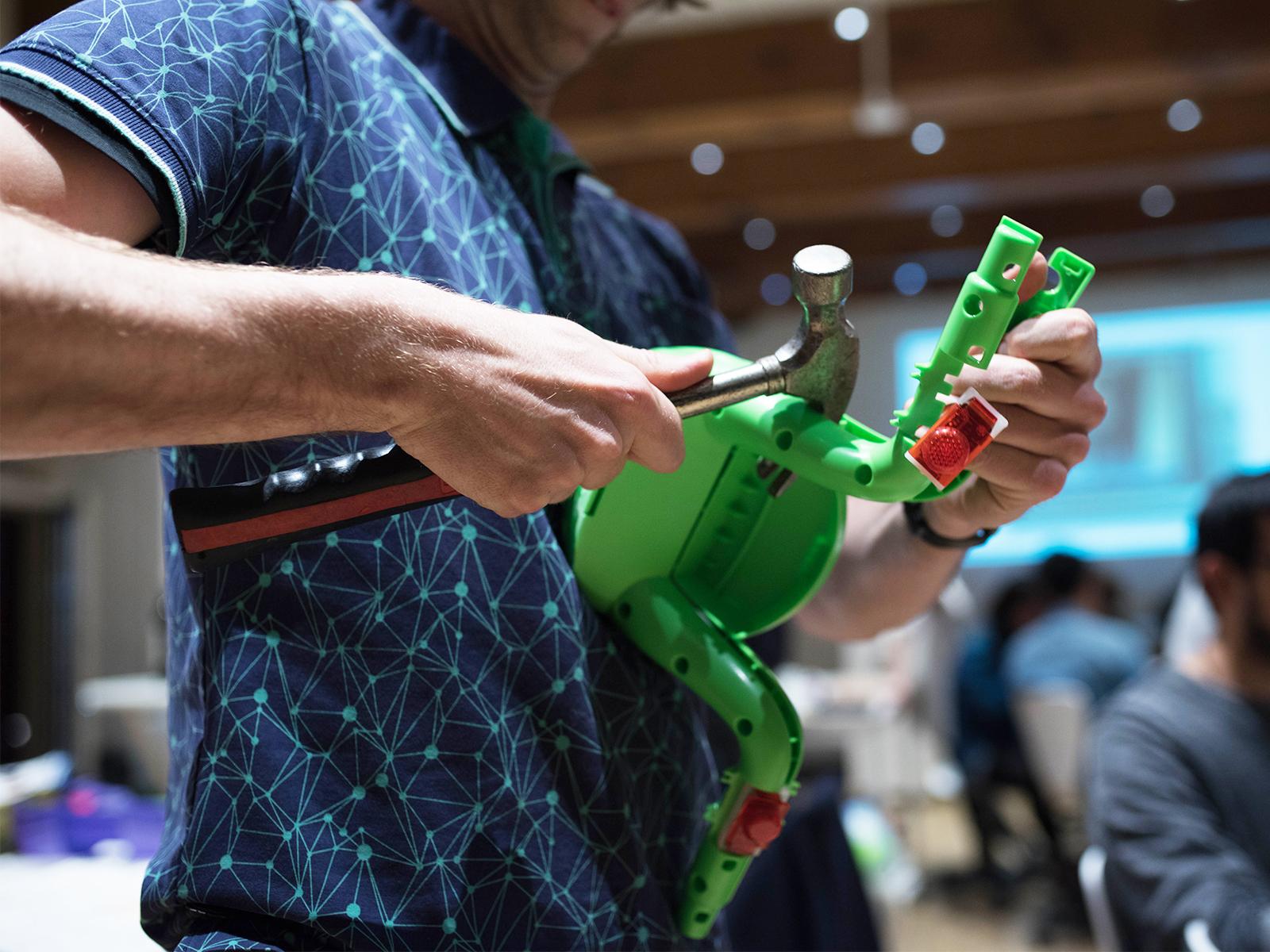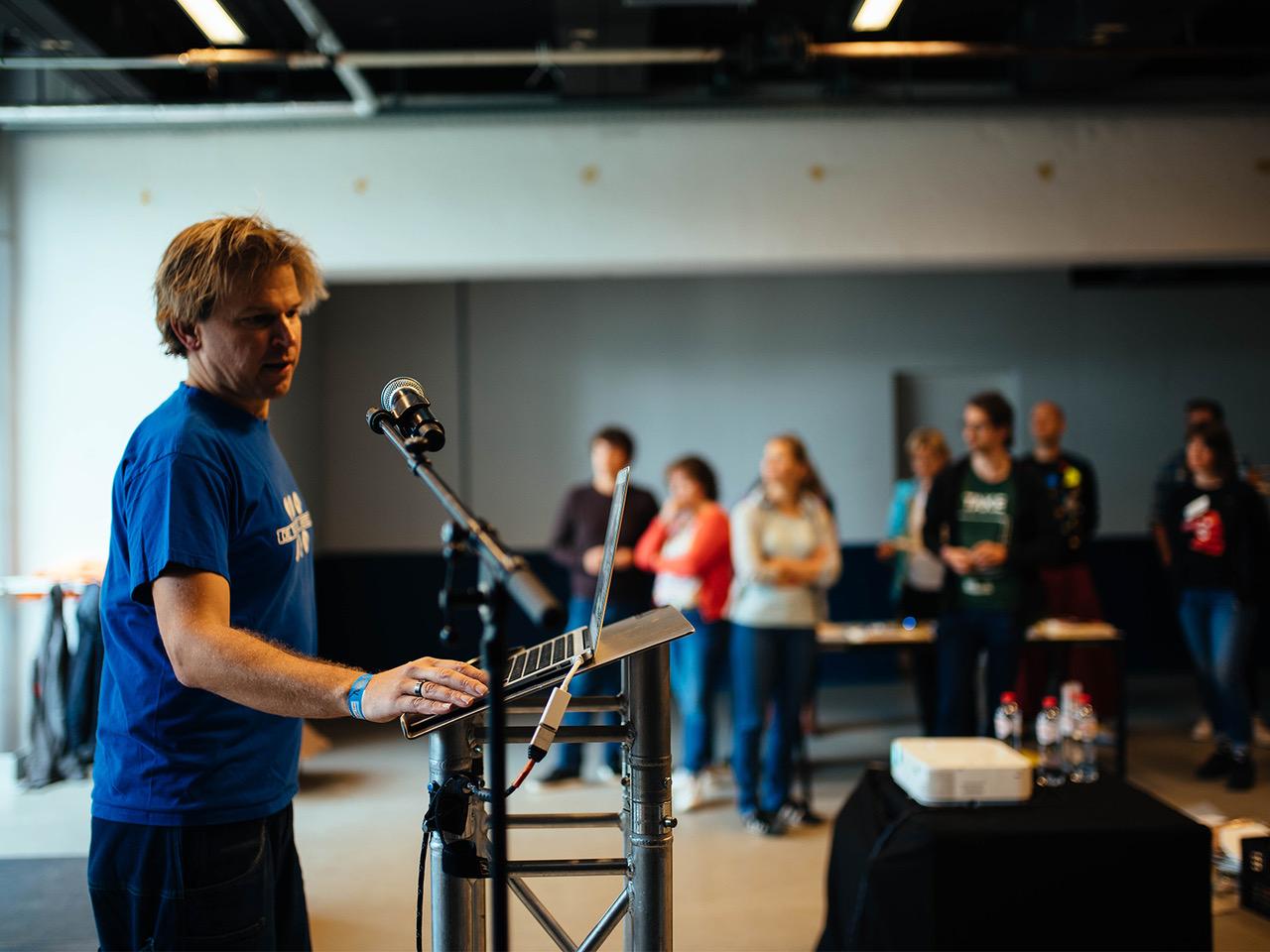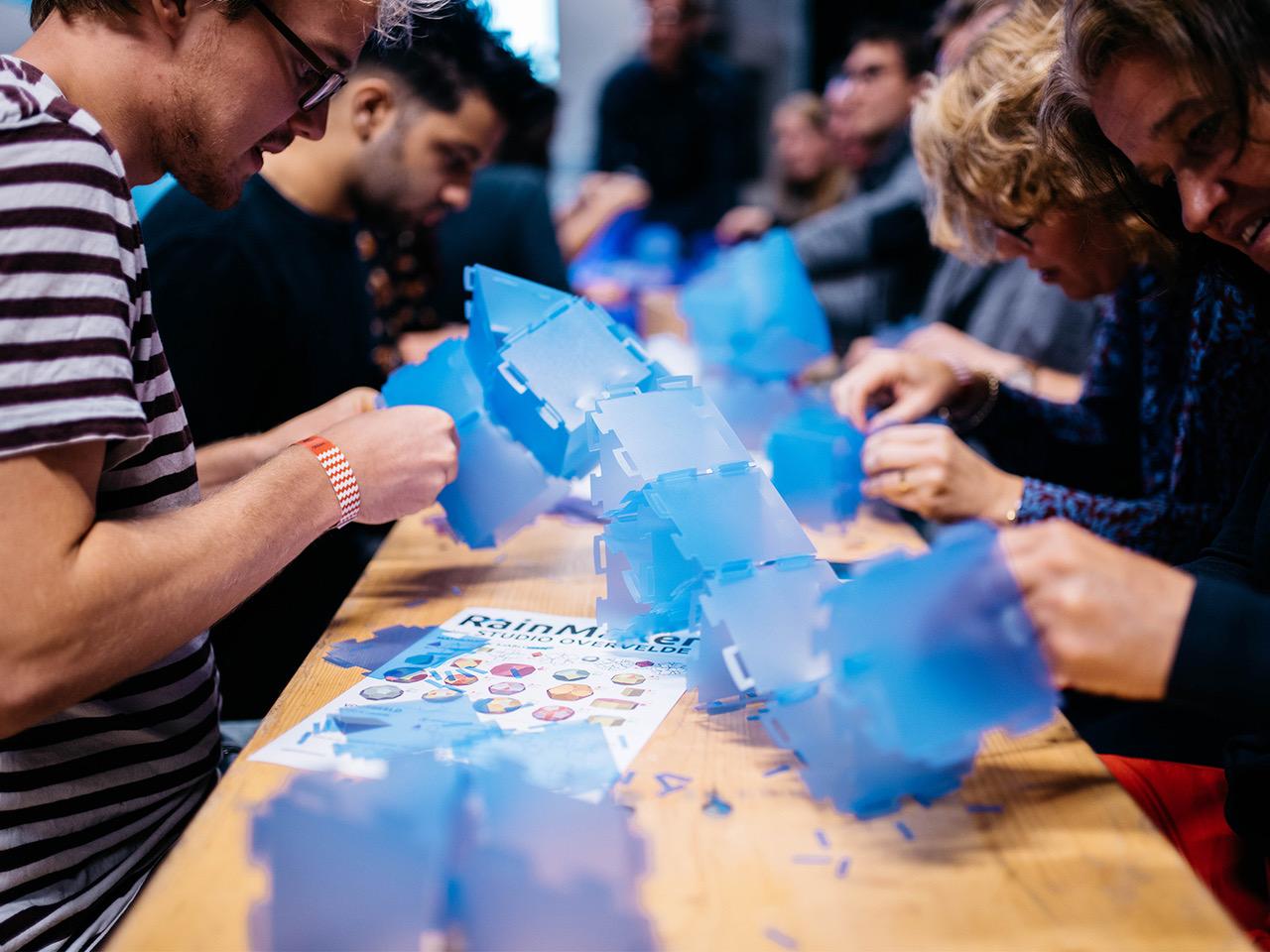I really look forward to FabLearn and the Maker Faire in Eindhoven!
Now that all schools have started again, the countdown to September 28 has really started. Together with our partners in MakerEducation.nl we worked very hard this summer to complete the programme for the FabLearn education conference.
When I look at the programme, I can not help but become very proud. There is a line-up of special speakers, from internationally renowned names to teachers who have been pioneering for years with maker education. There are 15 creative masterclasses in which you can experience tools that can be used in the classroom the very next day. There are more than 45 quality education providers at the Faire, 9 different break-out sessions aimed at exchanging experiences and conversation, and paper presentations (in English) in which research results are presented.
What a crazy load of fun, enthusiastic and inspiring people together! I am very excited to see everyone together, to talk to people, meet new creators, let myself be inspired and infect as many people as possible with the maker education virus.
Although with this list I am doing short of the richness and quantity that the programme offers, I would like to highlight a few parts that I personally look forward to:
- I hope to join the master class by Edwin Dertien to go on an adventure with a real inventor and make robots by hacking old toys and giving them a new destination. A bit like Simone Giertz, 'the queen of shitty' robots.
- And in the 'High-Low tech' masterclass by maker education pioneers Per-Ivar Kloen (De Populier and Fabklas) and Jorg Duitsman, they show how you design, solder and program electronic circuits yourself. On paper! With copper tape and the vinyl cutter.
- Strolling over the Faire is going to be a party anyway! In literally all booths at Faire, the art education providers organize a hands-on walk-in workshop, so that you can not only look and be inspired, but you can immediately get rid of your hands and get started. So you can make Bibberbeesten at the stand of Smart Hands, help build a modular art object of bioplastics with GEN.ERATE, program beautiful embroidery and make with the embroidery machine and Turtlestitch, get started with design thinking with Studio Tast, and make a robot and take part in the Sumo wrestling robot contest with Hebocon. And do not forget to take a look at the 'Library sqaure' of mobile maker spaces such as Frysklab and the Makersbuzz of Cubiss.
- We have a scoop with the new interactive installation by Studio Overvelde. RainMaker is based on scientific research by Bas Overvelde into so-called metamaterials. Bas uses origami techniques to build folding prototypes that are inspired by natural phenomena such as beehives and crystals. He introduces you to the wonderful world of these new materials and makes their complexity visible, but also understandable. After all, everything comes down to one simple puzzle piece. With that puzzle piece you build your own 3D building that becomes part of RainMaker!
- During the presentations of research papers (in English) about maker education I hope and expect to gain new knowledge and insights about state of the art research into creative education and the use of new technologies in the classroom.
- I am very curious about the experiences of and the conversation with our colleagues from the HAN/iXperium during one of the break-out sessions. This focuses on the implementation of creative education within the theme of science and technology in primary education.
- Of course I am also looking forward to the keynotes of Paulo Blikstein of Stanford University/FabLearn and Sylvia Martinez, author of Invent to Learn. It has been a year and a half since I last saw and talked to them during FabLearn Denmark and I am always curious about new research results and elements in their fascinating stories.
- The presentation and performance of Sam Aaron is, as far as I am concerned, the banging conclusion of the day. Sam Aaron is the maker of Sonic Pi; a simple programming language for programming music. Sam will provide a performance in which he encodes the music live on stage.
Hope to meet you at the conference 28 September.


